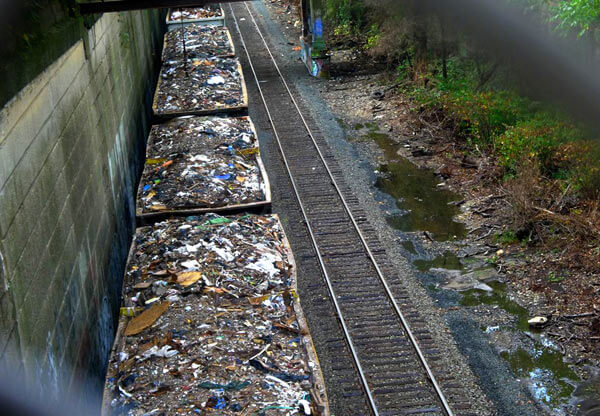By Howard Koplowitz
State Assemblyman Andrew Hevesi (D-Forest Hills) is calling on a city body to install sound barriers near the Fresh Pond Terminal in Ridgewood so residents will not have to hear loud freight trains passing by the neighborhood.
Hevesi also urged the New York Metropolitan Transportation Council to compel train operators to buy more technologically advanced locomotives that emit quieter noises as the group formulates a regional transportation plan.
The Fresh Pond Terminal in Ridgewood processes all freight shipped out of Long Island, according to Hevesi’s office.
“Tracks to reach this terminal are directly behind my constituents’ homes, causing quantifiable quality-of-life issues,” Hevesi said. “Budgeting for small capital expenditures, such as sound barriers along the existing tracks, would go a long way toward mitigating the problems my constituents are experiencing now and avoiding health and quality-of-life issues going forward. I would like to see … sound barriers or other capital improvements that would begin to immediately address these concerns.”
Residents who live near the terminal complain of excessive noise from idle trains that they say make it almost impossible to sleep.
The NYMTC plans to create 10 so-called “regional growth areas” — two of them in Queens — that would support increased train traffic.
Hevesi called on the body to consider the problems facing residents, including increased noise, air quality and environmental issues, as it moves forward with a plan.
“While it is logical to assume that rail traffic will increase on these corridors as a result of this plan, mitigation of noise, health and environmental problems should be addressed in the present, not in the future, after the regional growth areas are established and traffic levels have increased,” the assemblyman said.
Hevesi also said trains that pass through the terminal are outdated.
“I believe that we should make every effort to use locomotives with technology that is the most efficient, has the cleanest emissions and operates at the lowest decibel level,” he said. “In this way, we would be decreasing the amount of energy it takes to ship freight via rail, decreasing health risks associated with diesel emissions for those that breathe the air daily along the track and have the least noise impact possible in these residential neighborhoods.”
Reach reporter Howard Koplowitz by e-mail at hkoplowitz@cnglocal.com or by phone at 718-260-4573.

































